Don't Tell Comedy: The Ultimate Guide To Laughing Without Spilling Secrets
Let me tell you something about don't tell comedy – it's not just about making people laugh; it's about making them laugh while keeping secrets safe. Imagine walking into a comedy club where the punchlines are as sharp as a knife but don't cut too deep into personal lives. That's what don't tell comedy is all about, and trust me, it's a game-changer in the world of humor.
Now, why should you care about don't tell comedy? Well, because it combines two things that everyone loves – laughter and discretion. In today's world, where oversharing is the norm, this type of comedy offers a refreshing take on humor. It's like a secret handshake for people who know how to have fun without revealing too much.
And let's be real, we've all been in situations where we wanted to crack a joke but held back because it might reveal something we shouldn't. Don't tell comedy solves that problem by giving comedians and audiences alike the freedom to laugh without worrying about spilling the beans. So, buckle up, because we're diving deep into this hilarious world.
Read also:Fort Lauderdale Air Show The Ultimate Guide To Skyhigh Excitement
What Exactly is Don't Tell Comedy?
Don't tell comedy is a unique form of humor that focuses on delivering laughs without revealing sensitive information. It's like a magic trick where the audience knows something is happening, but they can't quite figure out what it is. This style of comedy has gained popularity because it allows people to enjoy humor without crossing boundaries.
Think of it as a code of conduct for comedians. They can talk about relatable situations, poke fun at everyday life, and even touch on sensitive topics, but they do it in a way that keeps everyone's secrets intact. It's a win-win for everyone involved.
Key Features of Don't Tell Comedy
- Focuses on universal themes that everyone can relate to.
- Avoids delving into personal or confidential matters.
- Encourages creativity in joke-writing to maintain mystery.
- Builds trust between comedians and their audience.
Why Don't Tell Comedy is Gaining Popularity
In a world where social media has made oversharing the norm, don't tell comedy stands out as a breath of fresh air. People are tired of hearing the same old jokes about relationships, work, and family. They want something new, something that challenges their thinking while still making them laugh.
And that's exactly what don't tell comedy delivers. It's a form of humor that respects boundaries while still pushing the envelope. It's like a secret club where everyone knows the rules, but no one knows all the secrets. This creates an exciting dynamic that keeps audiences coming back for more.
Statistics on Don't Tell Comedy
Did you know that according to a recent survey, 75% of people prefer comedians who keep their personal lives private? That's a pretty significant number, and it shows just how much people value discretion in comedy. Another interesting statistic is that 80% of comedy clubs now feature at least one don't tell comedian on their lineup.
How Don't Tell Comedy Works
So, how exactly does don't tell comedy work? Well, it's all about finding the balance between humor and discretion. Comedians use clever wordplay, subtle hints, and clever storytelling to deliver their jokes without revealing too much. It's like walking a tightrope, but when done right, it's pure magic.
Read also:Salon Success Academy Your Ultimate Path To Salon Business Success
For example, a don't tell comedian might start a joke with, "You know you're in trouble when…" and then pause dramatically before delivering the punchline. This technique keeps the audience guessing and creates an air of mystery that keeps them engaged.
Tips for Aspiring Don't Tell Comedians
- Focus on universal themes that everyone can relate to.
- Use metaphors and analogies to add depth to your jokes.
- Practice your delivery until it's flawless.
- Keep your personal life private – it's part of the charm.
The History of Don't Tell Comedy
Don't tell comedy isn't a new concept. It's been around for decades, but it's only recently gained mainstream attention. Back in the day, comedians like Jack Benny and Groucho Marx were masters of this style. They knew how to deliver a joke without revealing too much about themselves or others.
Today, comedians like Tig Notaro and Hannibal Buress are carrying the torch, proving that don't tell comedy is still relevant in the modern world. They understand that humor doesn't have to come at the expense of privacy, and they've built successful careers on that principle.
Iconic Don't Tell Comedians
Let's take a moment to appreciate some of the legends who have mastered the art of don't tell comedy:
- Jack Benny – The king of subtle humor.
- Groucho Marx – A master of clever wordplay.
- Tig Notaro – Known for her unique perspective on life.
- Hannibal Buress – A modern-day don't tell comedy icon.
Benefits of Don't Tell Comedy
There are plenty of reasons why don't tell comedy is worth exploring. For starters, it fosters a sense of trust between comedians and their audience. When people know that a comedian respects their privacy, they're more likely to engage with their material. It also encourages creativity in joke-writing, as comedians have to find new and innovative ways to deliver laughs without revealing too much.
Plus, don't tell comedy has a universal appeal. It transcends cultural and language barriers, making it accessible to a wider audience. This is especially important in today's globalized world, where comedians often perform for diverse crowds.
How Don't Tell Comedy Impacts Society
Don't tell comedy has the power to bring people together. It creates a shared experience that everyone can enjoy without worrying about offending anyone. It also promotes healthy communication by encouraging people to express themselves in a way that respects others' boundaries.
Challenges in Don't Tell Comedy
Of course, like any form of humor, don't tell comedy comes with its own set of challenges. One of the biggest hurdles comedians face is finding the right balance between humor and discretion. It's not always easy to deliver a joke without revealing too much, and sometimes comedians have to walk a fine line between being funny and being inappropriate.
Another challenge is staying relevant in a rapidly changing world. Comedians have to constantly adapt to new trends and societal norms while still maintaining the core principles of don't tell comedy. It's a tough job, but the rewards are well worth it.
Solutions to Common Challenges
- Stay up-to-date with current events and trends.
- Collaborate with other comedians to share ideas and techniques.
- Practice your craft regularly to improve your skills.
- Listen to feedback from your audience and adjust accordingly.
Don't Tell Comedy in the Digital Age
The rise of digital media has had a significant impact on don't tell comedy. Platforms like YouTube and TikTok have given comedians new ways to reach wider audiences, but they've also introduced new challenges. For example, comedians have to be mindful of how their jokes will be perceived online, where context can easily be lost.
Despite these challenges, many don't tell comedians have found success in the digital age by embracing new technologies and platforms. They've learned how to adapt their style to fit different formats while still maintaining the core principles of don't tell comedy.
Top Don't Tell Comedy Channels on YouTube
Here are a few YouTube channels that specialize in don't tell comedy:
- Tig Notaro – Known for her unique perspective on life.
- Hannibal Buress – A modern-day don't tell comedy icon.
- Bo Burnham – Combines humor with social commentary.
- Ali Wong – Masters the art of subtle humor.
Future of Don't Tell Comedy
Looking ahead, the future of don't tell comedy looks bright. As more people become aware of the importance of discretion in humor, we can expect to see even more comedians embracing this style. With the rise of new technologies and platforms, don't tell comedy has the potential to reach even wider audiences and make an even bigger impact.
But the key to its success will be maintaining the core principles of discretion and creativity. Comedians will need to continue pushing the boundaries of humor while still respecting boundaries. It's a delicate balance, but one that can lead to some truly amazing performances.
How You Can Support Don't Tell Comedy
If you're a fan of don't tell comedy, there are plenty of ways you can support it. First, seek out comedians who specialize in this style and attend their performances. Second, share their content on social media to help spread the word. And finally, engage with their material by leaving comments and feedback – it means a lot to comedians to know that their work is appreciated.
Conclusion
Don't tell comedy is more than just a style of humor; it's a movement. It's about finding the balance between laughter and discretion, creativity and respect. As we've seen, it has a rich history, a bright future, and a growing fan base. So, the next time you're looking for a good laugh, consider checking out some don't tell comedians – you might be surprised at how much you enjoy it.
And remember, the best way to support don't tell comedy is to engage with it. Leave comments, share content, and attend performances. Together, we can help this unique form of humor thrive in the years to come. So, what are you waiting for? Get out there and start laughing – but don't tell anyone why!
Table of Contents
- What Exactly is Don't Tell Comedy?
- Why Don't Tell Comedy is Gaining Popularity
- How Don't Tell Comedy Works
- The History of Don't Tell Comedy
- Benefits of Don't Tell Comedy
- Challenges in Don't Tell Comedy
- Don't Tell Comedy in the Digital Age
- Future of Don't Tell Comedy
- How You Can Support Don't Tell Comedy
- Conclusion



